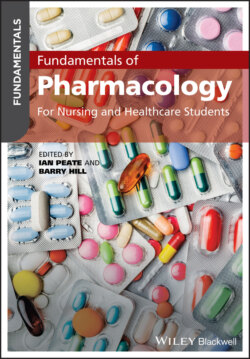Читать книгу Fundamentals of Pharmacology - Группа авторов - Страница 84
The law
ОглавлениеLaws exist to protect patients and the public. Recent years have seen changes in the culture within healthcare in the United Kingdom (UK), with a notable rise in litigation. Unlike some countries, where there is a ‘no‐blame’ process for medico‐legal cases, the UK system operates a ‘fault criterion’ whereby fault has to be established for the complainant to prove a case. Clinical negligence claims quadrupled between 2007 and 2017 (National Health Service Improvement (NHSI), 2019) leading to an exponential growth in the number of cases involving healthcare professionals who are forced to defend their practice in a court setting. Failing to monitor a particular drug therapy, failure to recognise the prescription of a contraindicated drug, failure to warn patients of adverse effects and neglecting to protect a patient from harm are all examples of pharmacology cases whereby blame could be laid. As our professional remit grows, so does the legal expectation. Given the amount of resources and information health professionals have access to, the defence of lack of knowledge is wholly insufficient.
Laws originate from two sources: Common Law, sometimes referred to as ‘Case’ Law, and Statute Law known as ‘Acts of Parliament’.
Common Law or Case Law refers to cases that are tried in courts of law, whereby a judge will give rule to a set of legal precedents. Common Law is constantly changing due to the ways in which judges interpret the law and use their knowledge of legal precedent and common sense as well as applying the facts of the case. Common Law safeguards that the law remains common throughout the land, and can be divided into either Criminal or Civil Law.
Statute Law or Acts of Parliament is law which is written down and codified into law. Acts begin as bills which then become Acts once the bills have been heard and possibly amended in the House of Commons and House of Lords before receiving ‘Royal Assent’. The Acts can either be private or public. Private Acts may apply to detailed locations within the UK or they may grant specific powers to public bodies, such as local authorities. Public Acts are the laws that affect the whole of the UK or one or more of its constituent countries: England, Wales, Scotland and Northern Ireland.
Healthcare and the law in the UK are strongly entwined. The laws created to protect the health of an individual can be seen when under the care of the hospital and its medical team, through to public health and the legal requirements of health and safety. Across the UK, the laws and charters that exist have been created to ensure that the rights and health interests of the individual are protected throughout the duration of their medical care. Healthcare professionals therefore have a legal duty to act with reasonable care when providing services. This ‘Duty of Care’ is defined as a ‘legal obligation imposed on individuals or organisations that they take reasonable care in the conduct of acts that could foreseeably result in actionable harm to another’ (Samanta and Samanta, 2011, p. 89). This includes prescribing drug therapy and drug administration, as well as consent, negligence and confidentiality – to name but a few. Failure to act with reasonable care could result in healthcare staff being held responsible in both criminal and civil courts.
